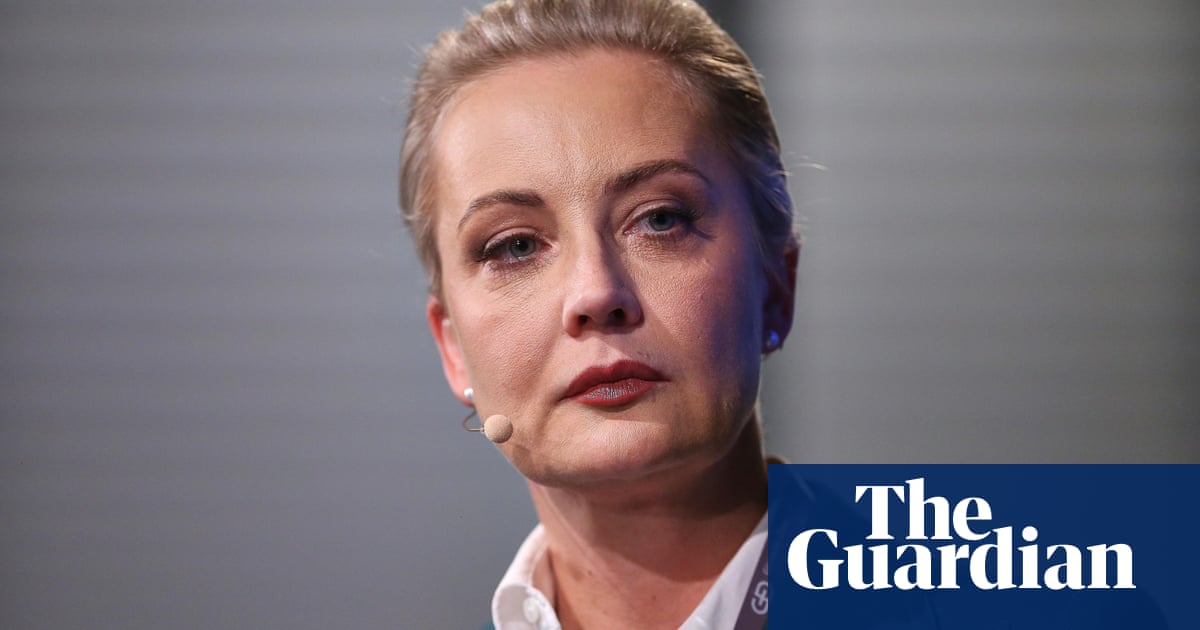Photo credit: www.theguardian.com
Yulia Navalnaya, the widow of the prominent Russian dissident Alexei Navalny, delivered a stark warning against negotiating with Russian President Vladimir Putin. Speaking at the Munich Security Conference just two days before the anniversary of her husband’s death, she stated, “He will lie,” emphasizing the unpredictability of negotiations with the Kremlin. Navalnaya explained that with Putin, there are only two potential outcomes: if he remains in power, any agreement will be broken; if he loses power, the agreement will hold no significance.
Joining Navalnaya at the panel was Sviatlana Tsikhanouskaya, the exiled leader of the Belarusian opposition, who emphasized the interconnectedness of regional security. She asserted, “By helping Ukraine, you’re helping the whole region,” warning that a Ukrainian defeat could empower Putin’s continued influence over Belarus. Tsikhanouskaya argued that strengthening Ukraine’s position in current negotiations would also bolster the security of neighboring nations like Moldova.
Ukrainian President Volodymyr Zelenskyy, in discussions with U.S. Vice President JD Vance, highlighted the necessity of securing “security guarantees” and a U.S.-Ukrainian peace framework before any negotiations with Putin. During their initial meeting at the Munich Security Conference, Vance expressed that the U.S. aims for a “durable, lasting peace” rather than a temporary resolution that might reignite conflicts in Eastern Europe. Both leaders acknowledged the need for ongoing discussions to find a shared understanding.
Zelenskyy conveyed a grim outlook regarding Ukraine’s endurance against Russia’s aggression without U.S. support during an interview with NBC’s Meet the Press. He indicated that while challenges persist, the risks of survival for Ukraine would be significantly undermined without American backing, stating, “It will be very, very, very difficult.” The full interview is set to air on Sunday.
French President Emmanuel Macron reaffirmed the importance of Ukrainian agency in peace discussions with Russia. After speaking with Zelenskyy, Macron conveyed on social media that it is the Ukrainians who should lead efforts for a genuine peace, assuring them of France’s support in this pursuit. He cautioned against any peace agreement that could be perceived as capitulation, reflecting concerns over U.S. interventions suggesting potentially unfavorable concessions from Russia.
Concluding discussions between Zelenskyy and Vance, there was no announcement on a vital minerals deal, which is critical for Kyiv to garner U.S. support. Ukraine presented a revised agreement aimed at inviting U.S. investment in its mineral resources. Zelenskyy noted on social media that discussions would continue to finalize the details. The agreement could potentially encompass vital minerals, including rare earth materials like titanium, uranium, and lithium.
In a separate report, Ukrainian President Zelenskyy revealed significant damage inflicted by a Russian drone on the radiation containment structure at the abandoned Chornobyl nuclear power plant. The drone created a fire upon impact, which was subsequently extinguished. Zelenskyy assured that radiation levels remained normal post-incident, although initial assessments indicated considerable damage to the shelter. The drone, identified as an Iranian-manufactured Shahed, was reportedly carrying a high-explosive warhead and was aimed at the reactor enclosure, according to Ukraine’s SBU security service.
Chornobyl’s chief engineer, Oleksandr Tytarchuk, provided further updates, noting ongoing efforts by emergency teams to manage the situation. Tytarchuk explained that the drone breached the protective outer cover, posing a daunting challenge. He underscored the severe implications had the explosion occurred closer to the reactor, which has been a point of concern given its age.
In the eastern Donetsk region, Russian forces have reportedly seized control of two settlements. According to the Russian defense ministry, the village of Zelene Pole, situated between critical attack zones, along with the village of Dachne, were captured amid fierce fighting. The Ukrainian general staff, however, highlighted that both villages were targeted in assaults without confirming their current status under Russian control.
Source
www.theguardian.com

